Froebel designed "Gifts" to encourage young children to make connections in their learning. The Gifts allow children to experiment and build on their knowledge and skills.
...all children have the desire to build and to build a house is a universal form of unguided play...
The Gifts
Froebel created a set of “Gifts” to support children’s learning and development in his kindergarten in Germany in the 1840s.
These Gifts include six sets of cubes, spheres and cylinders and included one of the first sets of wooden blocks developed specifically for young children to explore, create and play with. The Gifts are central to Froebelian practice.
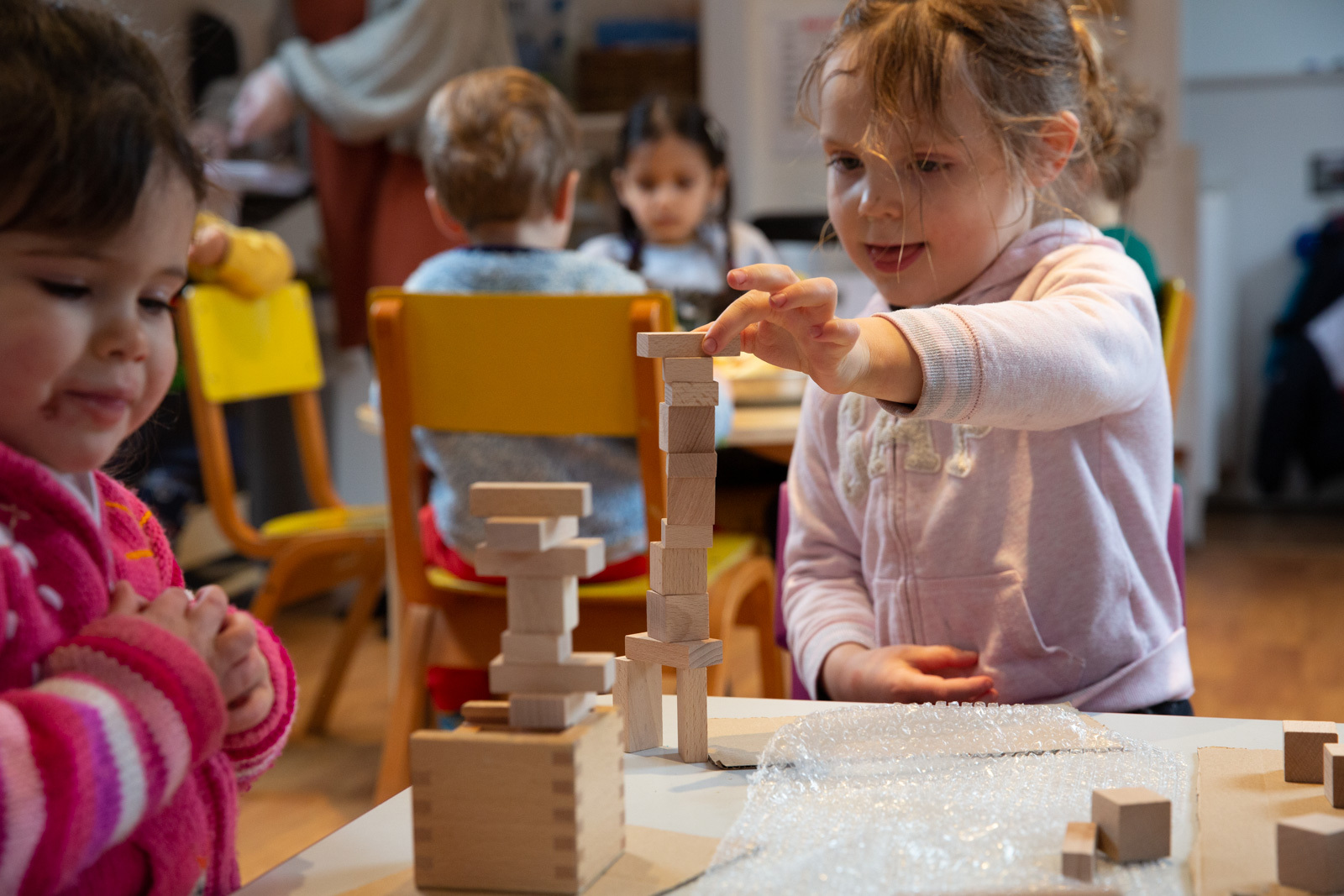
The Gifts provide opportunities for creative play and allow young children to explore aspects of mathematics, science, engineering and architecture.
The Gifts are designed to encourage young children to make connections in their learning; allowing them to take something familiar (a simple wooden block) and encourages them to experiment and build on their knowledge and skills. Children use the blocks to re-create things and events in the world around them.
Some of the gifts are soft and can be rolled, some are hard, some have flat sides and some can be balanced on others.
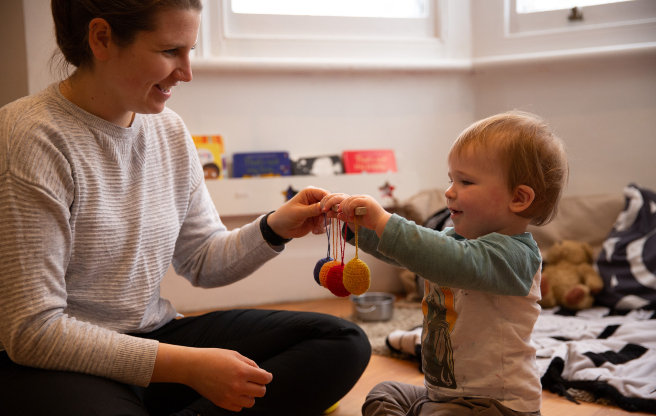
The Gifts encourage open-ended play
Babies and young children can play freely with the Gifts and discover connections, similarities and differences. Froebel recognised that young children are drawn to taking things apart, exploring them and re-forming them. Froebel also recognised the appeal of patterns and order for children; how the whole relates to the parts.
Froebel believed the role of the adult was also crucial. With the Gifts, a supportive adult, be that parent/carer or teacher, introduces the language of shape and form, of similarity and difference, of fractions, division and symmetry, of mathematical 3D shapes, of architecture and engineering, of storytelling and the arts.

Download our Gifts and Block Play pamphlet
Packed with activities and information all about Froebel's Gifts
Get your free copyThe Gifts are central to Froebelian practice and, like block play, enable children to make connections in their learning – building on the familiar, exploring the different and so expanding their skills, knowledge and understanding.
The Gifts are sequential, moving from simple to complex
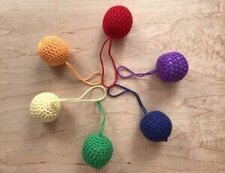
These can also be held, spinning by string from a hand.
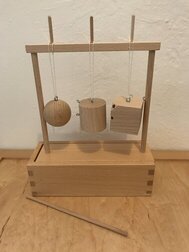
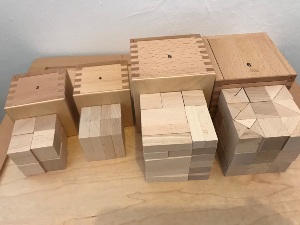
"...Froebel's building Gifts...were sequential, moving from simple to complex, encouraging the learner to explore connection and opposition. The brilliance of the design was such that learning became child's play."
Jane Whinnett in Froebel's Gifts and Block Play Today (free to download)
The Gifts
An article by Professor Tina Bruce and Jane Dyke. First published in Nursery World, January 2017.
Read the articleWhere can you purchase Froebel's Gifts?
Froebel believed that each child should have their own set of Gifts to allow the child to explore ideas on their own. He wanted children to share their ideas with each other, rather than sharing the actual blocks. You can purchase the Gifts (now made by SINA in Germany) from the Froebel Network in the UK.
Listen to a Froebel Trust Podcast episode all about block play
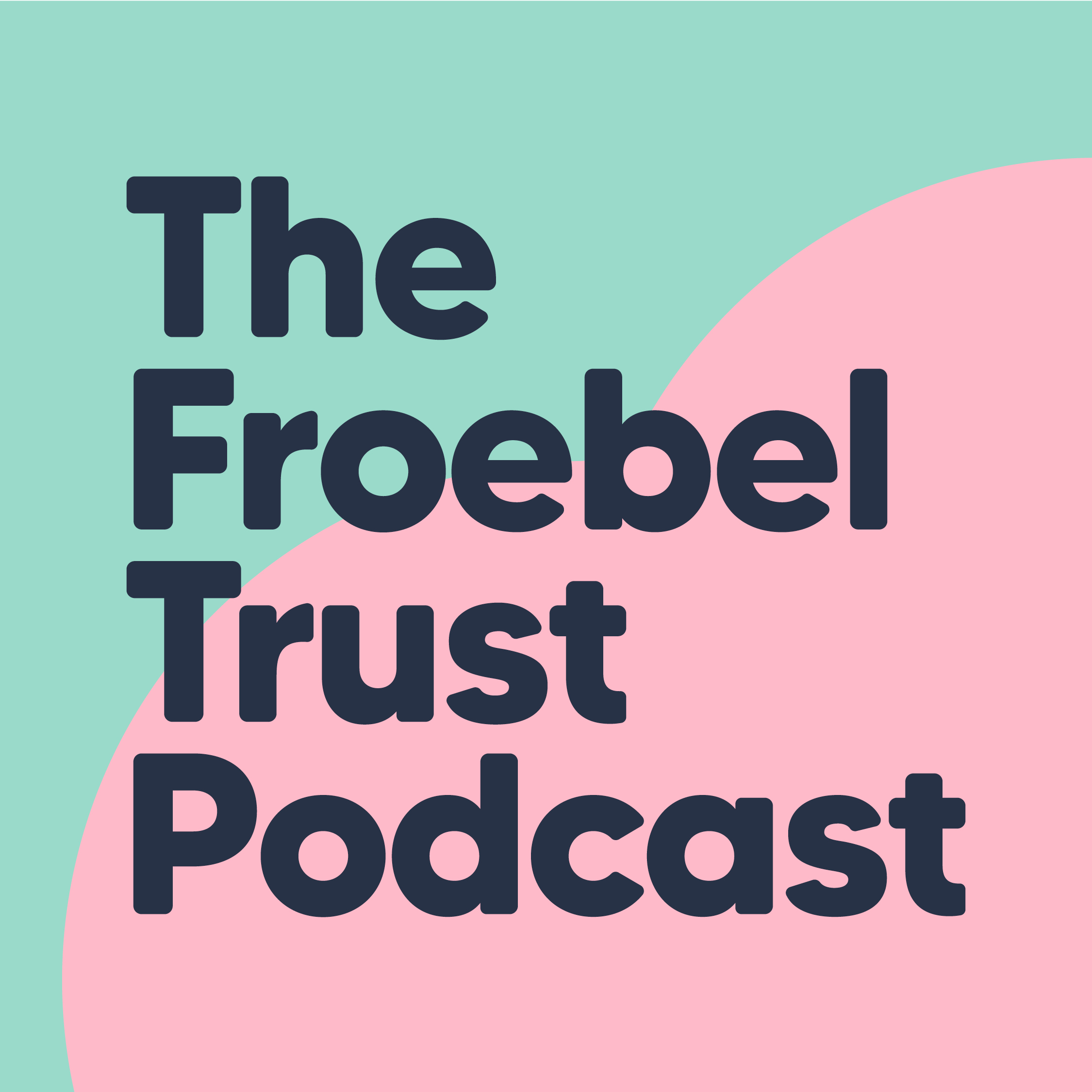
Released in May 2023
Want to learn more about the Gifts and block play?

Find out more in our free to download pamphlet Froebel's Gifts and Block Play Today.
- Read Bringing the Froebel Approach to your Early Years Practice by Helen Tovey (published By Routledge).
- Take a look at Learning from Froebel... the Gifts by Professor Tina Bruce and Jane Dyke, an article published in Nursery World in January 2017.
- Try one of our short courses which explore the relevance of the Gifts in modern practice
- Watch a short film all about block play created by Froebelian Futures (a Froebel Trust funded initiative)
- Read Inventing Kindergarten by Norman Brosterman. "Architect and artist Norman Brosterman tells the story of Froebel's life, explains his goals and educational philosophy, and describes each of the gifts, illustrating them all..."
Recent exhibitions featuring Froebel's Gifts
- Play Well, The Wellcome Collection, London, October 2019
- The Rules of Play, V&A Dundee, February 2019
- Froebel’s Gifts and the Principles of Design, The Museum of Modern Art, New York, August 2017
To learn a thing in life and through doing is much more developing, cultivating and strengthening than to learn it merely through the verbal communication of ideas.
Occupations
Froebel also wrote about "Occupations" - educational activities which enable children to be creative, to communicate, develop physical and problem-solving skills and develop an understanding of the natural world.
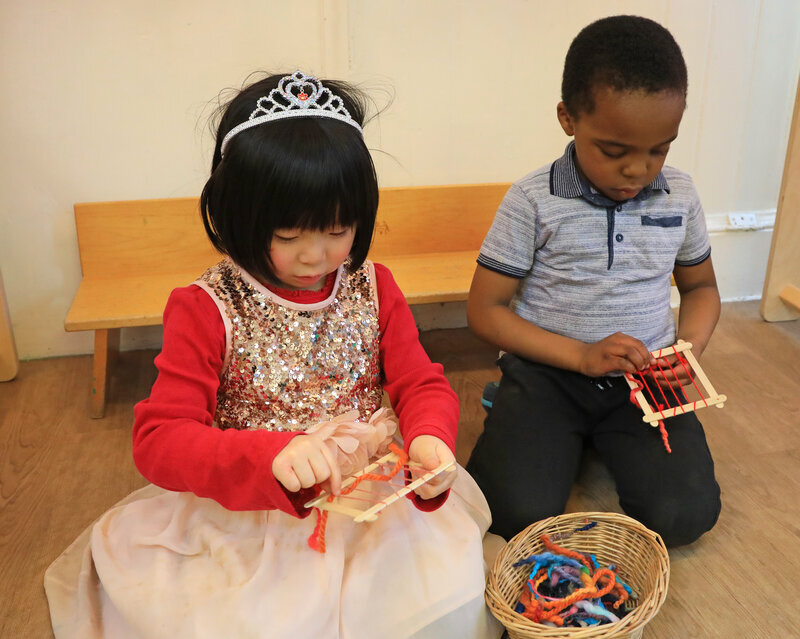
Occupations relate to real life and practical work
Occupations include a a range of craft activities for young children such as paper cutting, paper folding, sewing, woodwork, cooking, stick and pea constructions, clay, weaving, paper pricking and more. Froebel believed that it was important for children to have access to a wide range of media.
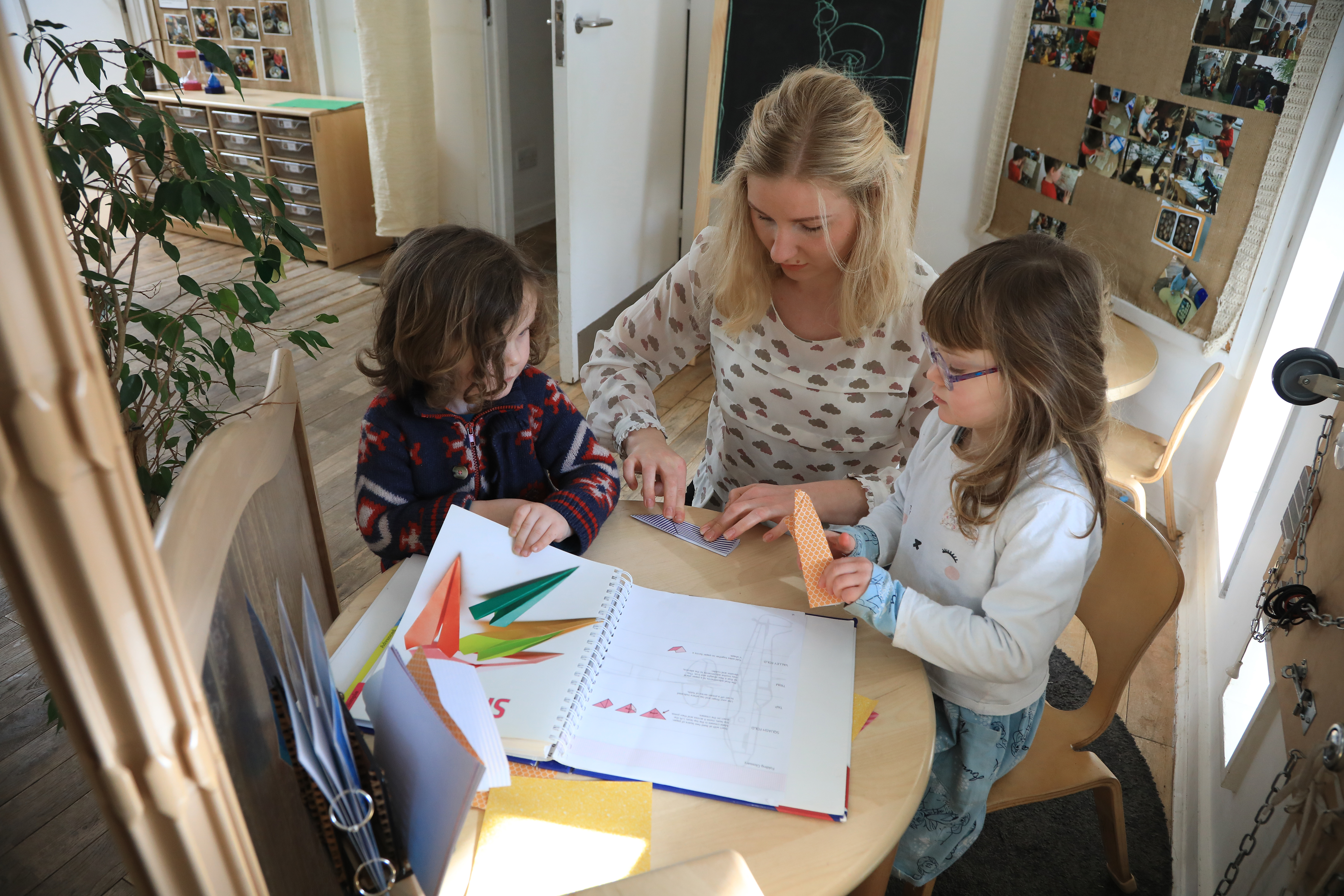
"To have found one quarter of the answers (to his own questions) by his own effort is of more value and importance to the child than to half hear and half understand it in the words of others"
Friedrich Froebel, 1826
Find out more about Occupations
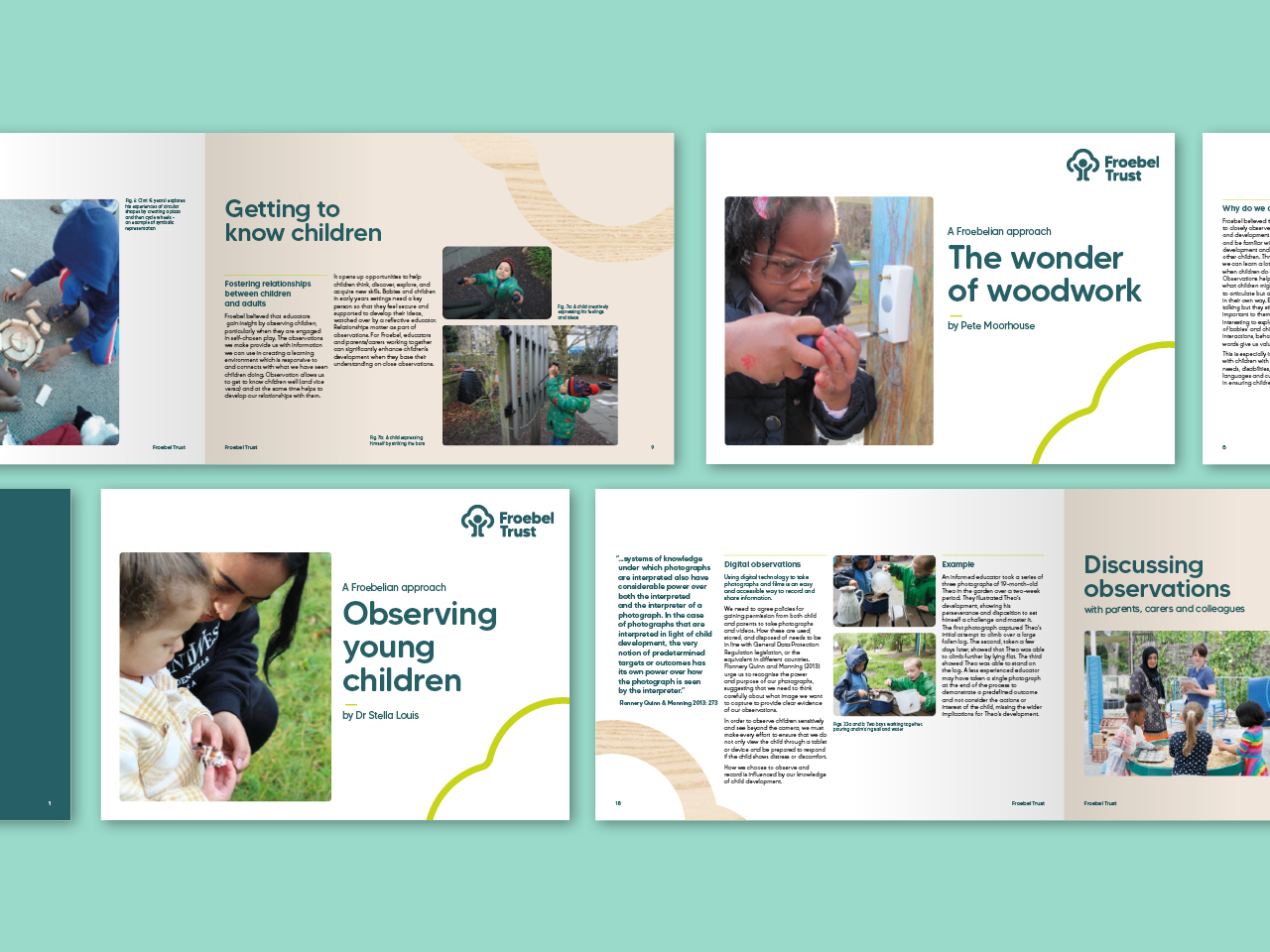
Have a look at our free to download set of pamphlets which explore ways to introduce these creative activities/ Occupations at home and in any early years setting.
For a more in-depth understanding, explore our reading list which focuses on all aspects of Froebelian principles and practice.
Simple playthings that allow children to feel and experience, to act and represent, and to think and recognise...


